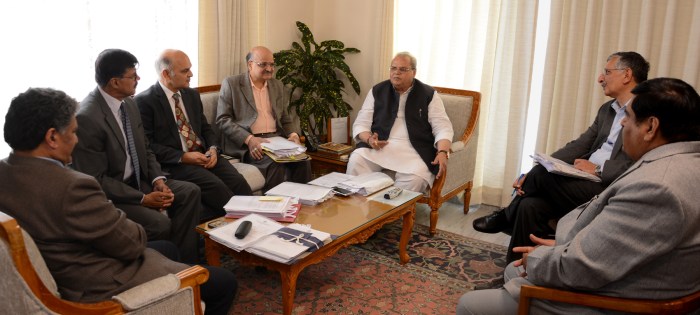In a major relief to the Sanatan citizens of the Jammu region of the Jammu & Kashmir, the government of Jammu & Kashmir, led currently by the governor of Jammu & Kashmir, Shri Satya Pal Malik, has repealed the Jammu & Kashmir State Lands (Vesting of the Ownership of the Occupants) Act, also known as the Roshni Act.
The decision was taken by Governor Malik, in the presence of his advisers B B Vyas, K Vijay Kumar, Khurshid Ahmad Ganai and K K Sharma, apart from the Chief Secretary BVR Subrahmanyam and Umang Narula, Principal Secretary to the Governor. To quote the press release, the act was repealed because ‘it failed to realize the desired objectives and there were also reports of misuse of some its provisions.’
The press release also said, ‘All pending proceedings under the Act shall stand cancelled immediately and abate. However, the SAC (State Administrative Council) directed that any action taken under the provisions of the repealed Act shall not be invalid.’
Aimed at ‘conferring 20.55 kanals of state land to the occupants’, the Roshni Act was implented in 2001 by Ghulam Nabi Azad, the then CM of the state. The Act, as per the then government’s claims, was aimed at generating resources for power projects and to confer proprietary rights to occupants of state land subject to payment of land cost fixed by the government.
However, as later investigated and accused by lawyer Ankur Dharma, advocate and chairman of Ikjutt Jammu, the Roshni Act was actually an attempt to change the demographics of the entire region. This was also reflective in the press release of the Governor’s order, which said, ‘Against the expected revenue from such occupants, the funds actually generated had been meagre thereby failing to realize the objective of the scheme.’
Though atrocious to think of, this is not entirely surprising. We’re no strangers to how the previous governments of J&K had made the lives of Kashmiri Sanatanis and Sikhs a living hell with their dubious laws, including provisions that led to one of the most horrifying genocides in the early 90s.
In this very scenario, the decision to implement the act, especially at a time when reports of illegal settlement of Rohingya Muslims cropped up on national media, the actions of the Mehbooba Mufti led government reeked more of minority appeasement than genuine concern for the displaced.
Had it not been for the protests from the nomadic Gujjar and Bakarwal communities, who vociferously objected to the settlement of the illegal Rohingya refugees, owing to their penchant for criminal activites. The State Government was as adamant in the implementation of the Act as the Kerala government is on the Sabrimala verdict. As such, we should be appreciative of the Governor’s actions in curbing illegal settlement of Rohingyas. This will also shut the mouths of the self declared critics of Modi government, who question as to what Modi has done for the betterment of the Hindus.
